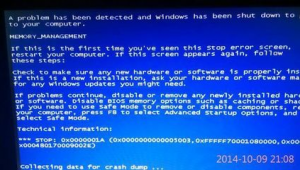Memory management is a crucial aspect of computer systems. It involves the allocation, deallocation, and organization of memory to ensure efficient and reliable operation. Without proper memory management, a computer system can suffer from performance issues, crashes, and memory leaks.
In modern computer systems, memory is typically divided into two main types: physical memory and virtual memory. Physical memory refers to the actual memory chips installed in the computer, while virtual memory is a portion of the hard drive that is used to simulate additional memory. The operating system is responsible for managing both types of memory and ensuring that applications have access to the memory they need.
One of the key challenges in memory management is allocating memory to different applications. When an application requests memory, the operating system must find a suitable block of memory to allocate to it. This requires keeping track of which parts of memory are currently in use and which are available. The operating system uses various memory allocation algorithms to determine the best way to allocate memory, such as first-fit, best-fit, and worst-fit.

Another important aspect of memory management is deallocating memory when it is no longer needed. When an application finishes using a block of memory, the operating system must release that memory so that it can be used by other applications. Failure to deallocate memory properly can lead to memory leaks, where memory is allocated but never released, eventually causing the system to run out of memory. To prevent memory leaks, the operating system uses garbage collection techniques to automatically detect and reclaim unused memory.
Virtual memory also plays a crucial role in memory management. By using a portion of the hard drive as virtual memory, the operating system can extend the available memory beyond the physical memory capacity of the computer. When the physical memory becomes full, the operating system can swap out some of the less frequently used pages of memory to the hard drive and bring in new pages as needed. This allows the system to continue running even when it runs out of physical memory.
However, virtual memory comes with its own set of challenges. Swapping pages between physical memory and the hard drive can be a slow process, which can lead to performance degradation. Additionally, if the hard drive becomes full, virtual memory cannot be used effectively, and the system may start to experience performance issues. To optimize virtual memory usage, the operating system uses page replacement algorithms to determine which pages to swap out and which to keep in memory.
In addition to these basic memory management tasks, there are also other considerations such as memory protection and cache management. Memory protection is necessary to prevent one application from accessing the memory of another application or the operating system itself. Cache management involves using cache memory to store frequently accessed data and instructions to improve performance.
Overall, memory management is a complex and essential part of computer systems. It requires careful coordination between the operating system and applications to ensure efficient use of memory and optimal system performance. With the increasing demands of modern applications and the growing size of memory-intensive tasks, memory management continues to be an active area of research and development in the field of computer science.











